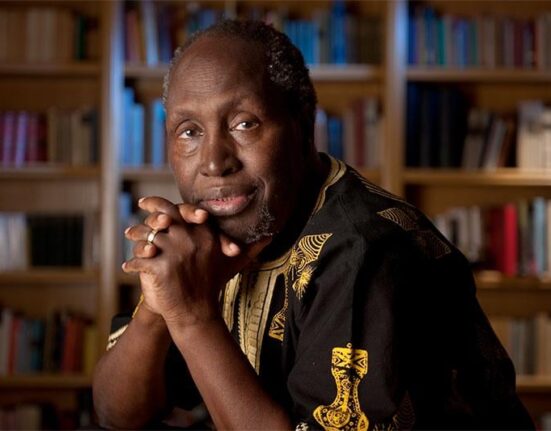Ngugi wa Thiong’o, originally named James Ngugi, was a literary giant whose impact reverberated far beyond the borders of Kenya. His profound insights into colonialism, postcolonialism, and the African experience have solidified his place as a prominent voice in African literature. Born in Kamiriithu, Kenya, Ngugi’s journey from mission-run schools to prestigious universities in Uganda and England shaped his perspective on the world and fueled his passion for decolonization.
Ngugi wa Thiong’o’s decision to change his name was not merely a symbolic gesture but a powerful statement against the lingering tendrils of colonial influence, embracing his Kenyan heritage with the adoption of the traditional Kikuyu name, Ngugi wa Thiong’o.
His literary career bloomed with the debut of his play “The Black Hermit” in 1962, marking the beginning of a prolific output that delved into the complexities of colonialism, the Mau Mau Uprising, and Kenya’s struggle for independence. Works like “Weep Not, Child” and “The River Between” showcased his ability to weave historical narratives with personal stories, capturing the essence of a nation in flux. Ngugi’s advocacy for African languages in literature was not just rhetoric but a lived belief, as he penned his works in his native Kikuyu, amplifying the voices of the marginalized.
Ngugi wa Thiong’o’s literary tapestry was not just a reflection of the past but a clarion call for decolonization and the empowerment of African narratives, challenging the status quo and reshaping the literary landscape.
His political activism, however, came at a cost. Persecuted for his dissenting views, Ngugi found himself imprisoned in his homeland before seeking refuge in England and later the United States. Despite physical distance, his voice remained unwavering, a beacon for those fighting against the vestiges of colonial rule and advocating for African self-determination. As a professor of literature, Ngugi continued to inspire generations of writers and thinkers, nurturing a legacy that transcended borders.
The enduring resonance of Ngugi wa Thiong’o’s works lies not just in their literary merit but in their unwavering commitment to truth, justice, and the amplification of African voices in a world that often seeks to silence them.
Among his notable works, “A Grain of Wheat,” “Petals of Blood,” and “Wizard of the Crow” stand as pillars of African literature, inviting readers to delve deep into the tapestry of African experiences, both past and present. However, it was his short story “The Upright Revolution: Or Why Humans Walk Upright” that etched his name in history, transcending language barriers with translations in over 100 languages, a testament to the universality of his message.
As news of Ngugi wa Thiong’o’s passing reverberates across the literary world, the loss is not just of a singular voice but of a guiding light that illuminated the path towards a more inclusive, decolonized future. His words will continue to echo in the hearts and minds of those who seek to challenge the narratives that bind and uplift the voices that have long been marginalized.
Ngugi wa Thiong’o’s legacy is not confined to the pages of his books but lives on in the hearts of readers who have been touched by his unwavering commitment to truth, justice, and the power of storytelling to shape the world.









Leave feedback about this